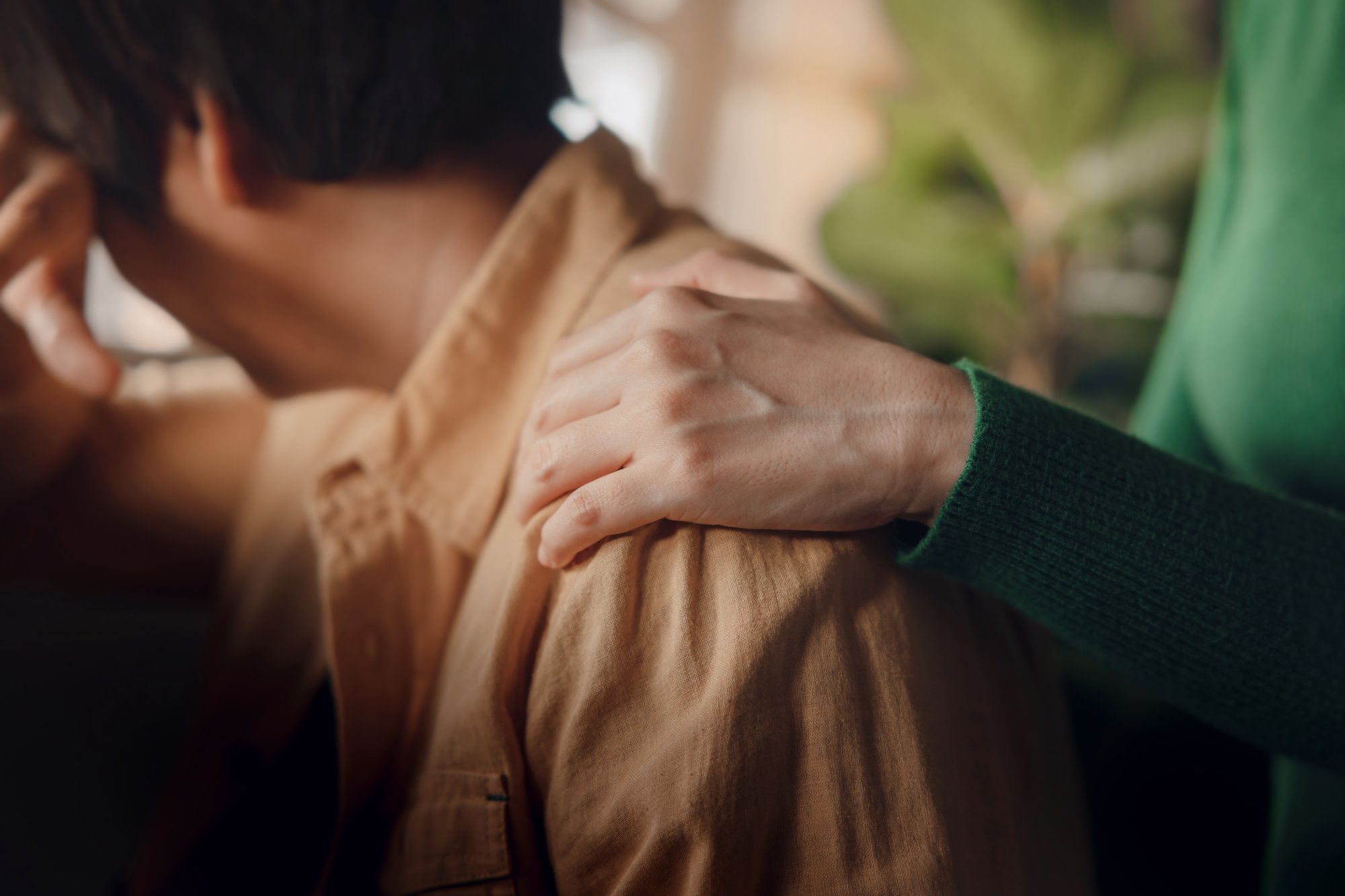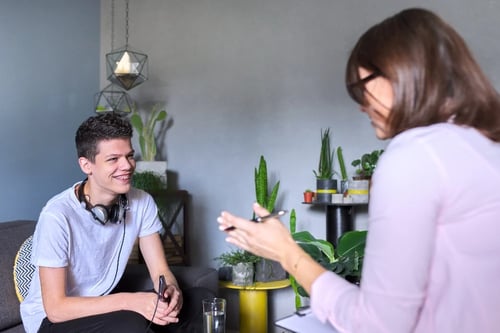Teen Depression and Anxiety
Understanding the Link
Mental health issues like depression and anxiety are on the rise among teenagers. Recent studies estimate that up to 20% of teens experience depression before reaching adulthood. Additionally, nearly one-third of adolescents between ages 13 and 18 will experience an anxiety disorder. There is also considerable overlap between anxiety and depression in teens, which can make getting effective treatment more complicated. As a parent, it is important to understand the connection between teen depression and anxiety and how to support your child through these difficulties.

Table Of Content
- Recognizing Depression in Teens
- Recognizing Signs of Anxiety and Depression in Your Teen
- Helping Your Anxious or Depressed Teen
- Securing Professional Help for Your Teen
The Link Between Teen Depression and Anxiety
Recognizing Depression in Teens
Teenagers experience many biological, social and emotional changes that make them more vulnerable to mental health problems like anxiety and depression. Puberty brings hormonal shifts, while peer pressure increases, academic demands grow more rigorous, and concerns around identity and the future take center stage. Anxiety disorders and depression often co-occur in adolescents for several interrelated reasons:
-
Shared Risk Factors: Many of the risks for developing anxiety and depression are shared, like genetics, traumatic life events, medical problems, stress, and substance abuse. If a teen already has a predisposition for one, they are at higher risk for the other as well.
-
Overlapping Symptoms: There are many overlapping psychological and physical symptoms between anxiety and depression, including trouble concentrating, sleep disturbances, restlessness, fatigue, irritability and loss of interest in activities. This symptom overlap can make it hard to differentiate the conditions.
-
Bidirectional Relationship: Anxiety and depression interact and can trigger one another. Anxiety can lead to social isolation, loneliness and loss of control, increasing depression risk. Depression can lead to negative thought patterns, low motivation and withdrawal, fueling anxiety. This two-way relationship makes treatment complex.
-
Shared Brain Abnormalities: Imaging studies reveal shared changes in brain regions like the prefrontal cortex and amygdala in patients with both anxiety and depression. These brain regions regulate emotions, behavior and response to stress. Their abnormalities result in amplified fear, worry, aggression and sadness.
In essence, teen anxiety and depression fuel each other. Treating one condition may help improve the other, but tackling both simultaneously leads to the best outcomes. As such, comprehensive treatment that addresses both depression and anxiety is usually needed.
Recognizing Signs of Anxiety and Depression in Your Teen
Recognizing Signs of Anxiety and Depression in Your Teen
Knowing what to look for is critical so you can get your teen help early. Here are some common signs of anxiety:
-
Excessive worry about school, sports, social life or appearance
-
Restlessness, feeling “on edge”
-
Fatigue, trouble sleeping
-
Headaches, stomachaches, muscle tension
-
Avoidance of feared situations like tests or social events
-
Panic attacks
Here are common signs of depression:
-
Persistent sad or “empty” mood
-
Hopelessness, negativity
-
Irritability, anger, aggression
-
Loss of interest in hobbies and activities
-
Problems concentrating and making decisions
-
Fatigue, lack of energy
-
Physical and mental sluggishness
-
Changes in appetite and sleep habits
-
Feelings of worthlessness or guilt
-
Thoughts of death or suicide
If you notice multiple signs persisting for at least two weeks, seek help without delay. A mental health professional can provide an expert assessment and create a tailored treatment plan.
Helping Your Anxious or Depressed Teen
Helping Your Anxious or Depressed Teen
As a parent, your support and involvement in treatment is vital for helping your anxious or depressed teen recover. Here are some tips:
-
Educate yourself on teen mental health and available resources. Understanding what your child is experiencing will help you respond in constructive ways.
-
Create an open, non-judgmental space for your teen to share their struggles. Don’t minimize their distress. Validate their feelings and reassure them you are there to help.
-
Help motivate them to adopt healthy coping strategies like sufficient sleep, regular exercise, proper nutrition and mindfulness techniques. These boost mood and resilience.
-
Monitor their social media use. Studies show frequent social media engagement is associated with poorer mental health in teens. Set reasonable limits.
-
Make accommodations at home to ease their load. For example, adjust expectations around chores or socializing if they are feeling overwhelmed.
-
Encourage interests and social connections that enrich their life, like sports, arts or spending time with positive peer role models.
-
Work collaboratively with their treatment team. Share observations from home and actively participate in decisions around medications and therapy.
-
Be patient through the ups and downs. Treatment isn’t always straightforward and recovery takes time. But stay hopeful; with proper treatment and family support, their outlook is good.
Getting Help for Your Teen
Securing Professional Help for Your Teen
If you see multiple signs of anxiety or depression persisting, here are the steps to take:
-
Seek evaluation from a mental health professional. Idaho Youth Ranch therapists can help diagnose and provide proven therapy options for teens to address anxiety & depression.
-
Consider both medication and therapy. A combination approach is often most effective for treating teen depression and anxiety. The right medication relieves symptoms while therapy equips them with coping skills.
-
Get a treatment plan that addresses both conditions. Make sure anxiety and depression are both thoroughly evaluated and treated concurrently.
-
Seek support from your teen’s school. Speak with counselors, teachers and administrators about resources and accommodations available on campus. Don’t hesitate to advocate for your child.
-
Look into community mental health clinics, support groups and crisis lines for additional help, and for when challenges arise outside business hours.
Remember, mental health disorders are common in youth. With the right treatment and family involvement, teens can overcome anxiety and depression and gain skills to support lifelong mental wellbeing. Stay vigilant about symptoms and don’t hesitate to reach out for professional care when needed. With compassion, patience and prompt help, your teen can thrive through these tough times and grow into a mentally stronger young adult.
Let Idaho Youth Ranch help your teen
Teen Counseling
Our masters-educated and trained therapists and counselors have the experience your young person needs to find healing.
Family Counseling
Idaho Youth Ranch can help your family reconnect, open up lines of communication, and build more positive relationships.
Group Counseling
Group therapy helps young people, ages 9 to 24, to address trauma, dangerous behaviors, troubling feelings or experiences.
Equine Therapy
Working with horses has been a proven method of emotional recovery and one of the unique services offered by Idaho Youth Ranch.


.webp?width=500&height=334&name=Idaho%20Youth%20Ranch%20Family%20Counseling%20(1).webp)

